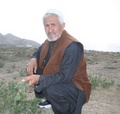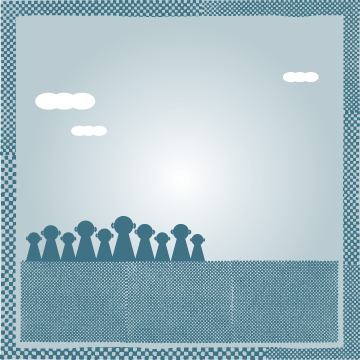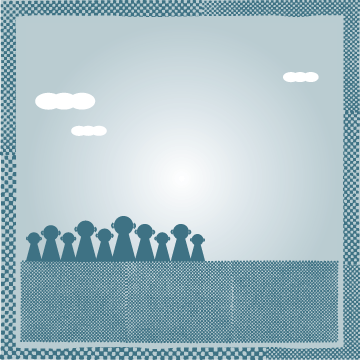Meet Your Neighbors: Afghanis find a new home in Fremont's "Little Kabul"
From KALW | 05:46
As U.S. journalists and photographers venture into war-torn countries like Afghanistan, scores of people from there try to get out. The largest Afghani community in the U.S. is right here in the East Bay: Fremont’s “Little Kabul."
KALW's Hana Baba visited the neighborhood and met some members of the local Afghan community to see how they’ve made this their new home.
- Playing
- Meet Your Neighbors: Afghanis find a new home in ...
- From
- KALW
 As U.S. journalists and photographers venture into war-torn countries like Afghanistan, scores of people from there try to get out. The largest Afghani community in the U.S. is right here in the East Bay: Fremont’s “Little Kabul."
KALW's Hana Baba visited the neighborhood and met some members of the local Afghan community to see how they’ve made this their new home.
As U.S. journalists and photographers venture into war-torn countries like Afghanistan, scores of people from there try to get out. The largest Afghani community in the U.S. is right here in the East Bay: Fremont’s “Little Kabul."
KALW's Hana Baba visited the neighborhood and met some members of the local Afghan community to see how they’ve made this their new home.
Human Smuggler
From Homelands Productions | Part of the WORKING series | 06:46
Gregory Warner profiles a Pashtun man who smuggles Afghan refugees over the mountains into Iran.
- Playing
- Human Smuggler
- From
- Homelands Productions
 For most Afghan refugees, fleeing the country is a once-in-a-lifetime experience. For Alidad, it's a job. He's spent 30 years smuggling Afghans on a secret nighttime passage through the mountains of western Pakistan into Iran. Sometimes he finds out too late they can't handle the journey. "We go when it's raining, when it's snowing. People fall off the mountain, people die," he says. "I have a lot of sad memories." Gregory Warner's profile is part of the WORKING series from Homelands Productions.
For most Afghan refugees, fleeing the country is a once-in-a-lifetime experience. For Alidad, it's a job. He's spent 30 years smuggling Afghans on a secret nighttime passage through the mountains of western Pakistan into Iran. Sometimes he finds out too late they can't handle the journey. "We go when it's raining, when it's snowing. People fall off the mountain, people die," he says. "I have a lot of sad memories." Gregory Warner's profile is part of the WORKING series from Homelands Productions.
Women and the Taliban
From World Vision Report | 04:32
Twenty-one thousand new troops are heading to Afghanistan this summer. That’s in response to the growing threat of the Taliban there. There also have been calls for the Taliban to come to the negotiating table to consider power sharing. But that prospect worries women’s rights advocates. They fear the small achievements they’ve made in the past few years could be wiped away. Reporter Naheed Mustafa spoke with two Afghani women about the issue and has this report from Kabul.
- Playing
- Women and the Taliban
- From
- World Vision Report
![]() If you air this piece, please include a back announce saying "This piece originally aired on the World Vision Report." or "This piece came to us from the World Vision Report."
If you air this piece, please include a back announce saying "This piece originally aired on the World Vision Report." or "This piece came to us from the World Vision Report."
A female doctor tackles maternal health in Afghanistan
From UNICEF | 03:52
Afghani Doctor Sumaira Yaftali speaks about maternal mortality and child mortality in Afghanistan.
 Afghani Doctor Sumaira Yaftali speaks about maternal mortality and child mortality in Afghanistan.
Afghani Doctor Sumaira Yaftali speaks about maternal mortality and child mortality in Afghanistan.
Risks for Women Giving Birth at a Hospital in Kabul, Afghanistan
From UNICEF | 06:29
This story is free! Hear about how difficult it is for pregnant women and new mothers with limited resources in an Afghanistan Hospital
- Playing
- Risks for Women Giving Birth at a Hospital in ...
- From
- UNICEF
 Sixteen-year-old Ekleema is waiting to give birth to her first baby. Her labor is progressing very slowly. After 24 hours there seems to be no end to her misery. She looks terrified and exhausted. Married at 14, she has already had one miscarriage.
Ekleema lives in war-torn Afghanistan, where discovering you're pregnant is akin to finding out you have a potentially fatal illness. An Afghan woman has a one in eight lifetime chance of dying in pregnancy or childbirth. Indeed, with one of the highest maternal mortality rates in the world, Afghanistan is one of only a handful of countries where women have a shorter life expectancy than men.
Luckily she doesn't know these statistics. Like the vast majority of Afghan women, she cannot read or write. But you don't need an education to know that child-bearing in Afghanistan is a risky business. Every family has stories of lost mothers, daughters or sisters.
Ekleema's chances of survival are good. She has been admitted to Kabul's Malalai Hospital where her baby will be delivered by a trained doctor or midwife and emergency care is available.
In the main delivery ward beds stand in a line against the wall. There's a woman lying on each one, the women scream in turn but none is quite ready to give birth. Lying on the floor at the far end of the ward is 22-year-old Parvana. With the help of a midwife who's kneeling at her feet, she delivers her baby right there on the ground.
Looking at the delivery table that has been in use since the Soviets invaded in the 1970s, it is hard to believe that conditions at Malalai Hospital have improved since the days of the Taliban, when operations were frequently conducted by oil lamp because there was no electricity. Yet six years ago, after decades of war, drought and civil unrest, Afghanistan had no functioning medical system. While this affected all its citizens, the health of women was particularly neglected.
In a few short years, Afghanistan has made major strides towards creating a health system, with great improvements in the under-five mortality rate. Malalai has become one of Afghanistan's leading training hospitals, running courses in infection prevention and emergency obstetric care.
Yet many problems continue to plague the country's efforts to slash maternal mortality - one major obstacle being the shortage of female health workers. Since it is still unacceptable for a woman to be treated by a man, this shortage contributes to Afghanistan's maternal death toll.
To address the gap, Afghanistan has launched a drive to recruit and train midwives, particularly in remote regions where the shortages are so acute. Today Afghanistan has more than 2,400 trained midwives, up from only 446 in 2002, but a far cry from the 8,000 the country needs for adequate health coverage.
Other obstacles to boosting maternal health include ongoing violence in some parts of the country and an appalling scarcity of hospitals and trained staff in others. Yet another culprit, says Fauzia Kofi, a rising star in Afghan politics, is the gender bias against women.
A Member of Parliament, Ms. Kofi recently traveled by car and on horseback to reach some of the most remote parts of her constituency. When she asked one woman how she would reach a hospital if she became pregnant, the woman replied that her life was not a priority for the family. It would be better, she said, for her to die than for her family to lose an animal.
Sixteen-year-old Ekleema is waiting to give birth to her first baby. Her labor is progressing very slowly. After 24 hours there seems to be no end to her misery. She looks terrified and exhausted. Married at 14, she has already had one miscarriage.
Ekleema lives in war-torn Afghanistan, where discovering you're pregnant is akin to finding out you have a potentially fatal illness. An Afghan woman has a one in eight lifetime chance of dying in pregnancy or childbirth. Indeed, with one of the highest maternal mortality rates in the world, Afghanistan is one of only a handful of countries where women have a shorter life expectancy than men.
Luckily she doesn't know these statistics. Like the vast majority of Afghan women, she cannot read or write. But you don't need an education to know that child-bearing in Afghanistan is a risky business. Every family has stories of lost mothers, daughters or sisters.
Ekleema's chances of survival are good. She has been admitted to Kabul's Malalai Hospital where her baby will be delivered by a trained doctor or midwife and emergency care is available.
In the main delivery ward beds stand in a line against the wall. There's a woman lying on each one, the women scream in turn but none is quite ready to give birth. Lying on the floor at the far end of the ward is 22-year-old Parvana. With the help of a midwife who's kneeling at her feet, she delivers her baby right there on the ground.
Looking at the delivery table that has been in use since the Soviets invaded in the 1970s, it is hard to believe that conditions at Malalai Hospital have improved since the days of the Taliban, when operations were frequently conducted by oil lamp because there was no electricity. Yet six years ago, after decades of war, drought and civil unrest, Afghanistan had no functioning medical system. While this affected all its citizens, the health of women was particularly neglected.
In a few short years, Afghanistan has made major strides towards creating a health system, with great improvements in the under-five mortality rate. Malalai has become one of Afghanistan's leading training hospitals, running courses in infection prevention and emergency obstetric care.
Yet many problems continue to plague the country's efforts to slash maternal mortality - one major obstacle being the shortage of female health workers. Since it is still unacceptable for a woman to be treated by a man, this shortage contributes to Afghanistan's maternal death toll.
To address the gap, Afghanistan has launched a drive to recruit and train midwives, particularly in remote regions where the shortages are so acute. Today Afghanistan has more than 2,400 trained midwives, up from only 446 in 2002, but a far cry from the 8,000 the country needs for adequate health coverage.
Other obstacles to boosting maternal health include ongoing violence in some parts of the country and an appalling scarcity of hospitals and trained staff in others. Yet another culprit, says Fauzia Kofi, a rising star in Afghan politics, is the gender bias against women.
A Member of Parliament, Ms. Kofi recently traveled by car and on horseback to reach some of the most remote parts of her constituency. When she asked one woman how she would reach a hospital if she became pregnant, the woman replied that her life was not a priority for the family. It would be better, she said, for her to die than for her family to lose an animal.
Women's Magazine in Afghanistan
From World Vision Report | 04:42
Newspapers and magazines are having a tough time in the US. Magazines like Gourmet and CosmoGirl/Metropolitan Home have shut down, and recently Newsweek announced it was up for sale. But that’s not the case in Afghanistan. Publications there are thriving. One that’s doing especially well is a magazine created by women, for women. Will Everett reports from Kabul.
- Playing
- Women's Magazine in Afghanistan
- From
- World Vision Report
![]()
If you air this piece, please include a back announce saying "This piece originally aired on the World Vision Report." or "This piece came to us from the World Vision Report."
Shovelling the Rain Away
From Canadian Broadcasting Corporation | Part of the CBC Award Winning Radio Programs series | 14:30
The image of old men shovelling rain off the roads in Afghanistan sets up a grim picture of the frustration of Afghans who sincerely want to make their country work. 'Shovelling the Rain Away' took Gold at the 2010 New York Festivals.
 Reporter Naheed Mustafa travelled to Afghanistan in 2009 to map the progress of the political, human rights and humanitarian goals of the allied mission there. She found a glaring dilemma. None of the initiatives take root without strong western support. But anything seen by Afghans to be tied to "outsiders" is doomed. Naheed's image of old men shovelling rain off the roads sets up the grim picture of frustration felt by the Afghans she meets who honestly want to make their country work.
Reporter Naheed Mustafa travelled to Afghanistan in 2009 to map the progress of the political, human rights and humanitarian goals of the allied mission there. She found a glaring dilemma. None of the initiatives take root without strong western support. But anything seen by Afghans to be tied to "outsiders" is doomed. Naheed's image of old men shovelling rain off the roads sets up the grim picture of frustration felt by the Afghans she meets who honestly want to make their country work.
'Shovelling the Rain Away' won Gold in the National/International Affairs category at the 2010 New York Festivals Radio Program and Promotions Award.
Interview With Afghan Journalist After Hotel Bombing
From War News Radio | 07:28
News and features on the conflicts in Libya, Iraq, and Afghanistan.

PPW 10: New Orleans
From Narrative Arts | Part of the Prison Poetry Workshop Podcasts series | 07:31
Join the Prison Poetry Workshop as we travel to New Orleans and join a group of prison poets who are taking on Walt Whitman.
- Playing
- PPW 10: New Orleans
- From
- Narrative Arts
 Join the Prison Poetry Workshop as we travel to New Orleans and join a group of prison poets who are taking on Walt Whitman.
Join the Prison Poetry Workshop as we travel to New Orleans and join a group of prison poets who are taking on Walt Whitman.
